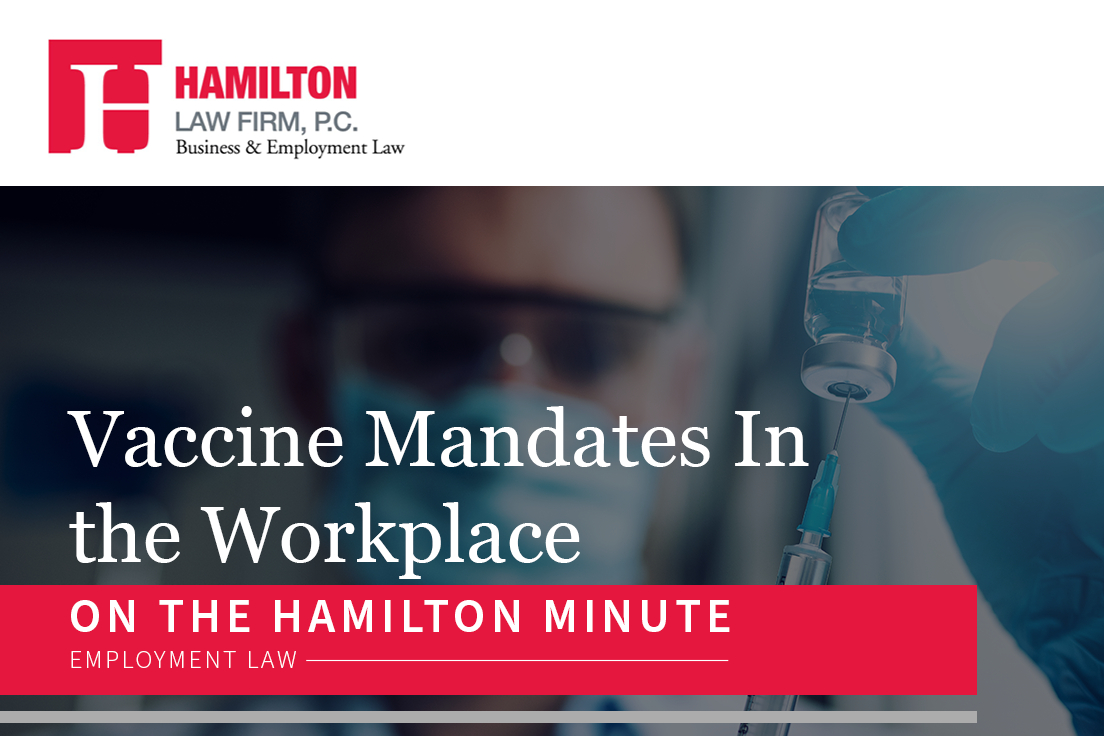In September 2021, the New Jersey Appellate Division issued a ruling in the City of Newark v. Superior Officers Association, et. al. This case is one of the first dealing with the validity of vaccine mandates in the workplace in New Jersey.
On August 10, 2021, the Mayor of Newark issued a directive that all city employees provide proof of vaccination by August 16, 2021, or submit to testing while awaiting full vaccination. The order also provided that any employee who failed to comply would be subject to disciplinary action, upto and including termination, and could be sent home without pay pending compliance. 10 unions representing city employees sued for an injunction against the enforcement of this order. PERC (Public Employment Relations Commission) ruled that the City had the authority to issue this vaccine mandate but that it was required to expeditiously engage in a negotiation of the union’s collective bargaining agreements.
In this opinion, the Appellate Division gave us some strong language that is going to be equally applicable to private sector employers as well.
- The Appellate Division confirmed that employers are permitted to issue vaccine mandates in light of the global healthcare crisis and Pandemic.
- The Appellate Division found that Newark was not required to re-negotiate any collective bargaining agreements to permit the discipline contained in the Order as that discipline was necessary to ensure compliance with the Order and was for the benefit of the health of the workplace.
- The Appellate Division also ratified the validity of the vaccine mandate finding that the City of Newark had not operated in a vacuum in arriving at this vaccine mandate, that it’s decision was supported by national and state level executive orders relating to the health emergency, medical advice, and CDC and OSHA guidance.
Whether you are an employer or an employee, you are likely to be confronted with this issue in your workplace. As the employee, if you do not want to comply with the vaccine mandate, you will need to demonstrate that you are protected by either a medical reason (ADA) or a religious reason (First Amendment) which exempts you from the workplace rule. As an employer, when faced with an employee who is non-compliant with your workplace policy, you must engage in an interactive discussion about their reasons for non-compliance.
The Bottomline: While the issue of Covid-19 vaccinations has become highly politicized, you cannot bury your head in the sand when it comes to a vaccine mandate at work. Employers are anticipating that most workplaces will have a vaccine mandate starting in January 2022. Employees and employers alike will need to ensure compliance or a documented reason for why compliance is not possible.


